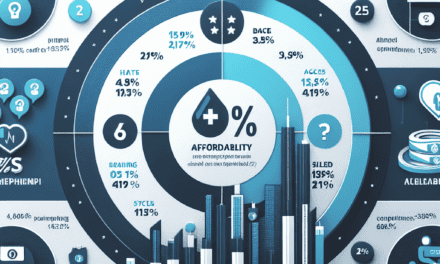Public Health Experts Urge HHS to Deny Georgia’s Medicaid Work Requirement Extension
The ongoing debate surrounding Medicaid work requirements has gained renewed attention as public health experts urge the U.S. Department of Health and Human Services (HHS) to deny Georgia’s request for an extension of its Medicaid work requirement. This article delves into the implications of such requirements, the arguments for and against them, and the potential impact on vulnerable populations in Georgia. By examining the nuances of this issue, we aim to provide a comprehensive understanding of the stakes involved.
Understanding Medicaid Work Requirements
Medicaid work requirements are policies that mandate certain beneficiaries to engage in work or other qualifying activities to maintain their health coverage. These requirements have been implemented in various states, including Georgia, as a means to encourage self-sufficiency among Medicaid recipients. However, the implications of these policies are complex and multifaceted.
Supporters of Medicaid work requirements argue that they promote personal responsibility and reduce dependency on government assistance. They contend that by incentivizing work, these policies can lead to better health outcomes and economic stability for individuals. However, critics highlight the potential negative consequences, particularly for vulnerable populations who may face barriers to employment.
- Historical Context: The introduction of work requirements in Medicaid can be traced back to broader welfare reform efforts in the 1990s. The idea was to encourage individuals to transition from government assistance to employment.
- Current Landscape: As of 2023, several states have implemented or proposed work requirements, with varying degrees of success and public support.
- Legal Challenges: Many states have faced legal challenges regarding the implementation of work requirements, with courts often siding with opponents who argue that these policies violate the purpose of Medicaid.
- Impact on Health Outcomes: Research indicates that work requirements can lead to increased rates of uninsurance and poorer health outcomes for those who lose coverage.
- Public Opinion: Surveys show mixed feelings among the public regarding work requirements, with many supporting the idea but also expressing concern for those unable to meet the requirements.
The Case Against Georgia’s Medicaid Work Requirement Extension
Public health experts have raised significant concerns regarding Georgia’s request to extend its Medicaid work requirement. These concerns center around the potential negative impact on health outcomes, access to care, and the overall well-being of vulnerable populations.
One of the primary arguments against the extension is the potential for increased uninsurance rates. Studies have shown that work requirements can lead to significant coverage losses, particularly among low-income individuals who may struggle to meet the requirements due to various barriers, such as caregiving responsibilities, health issues, or lack of access to transportation.
Furthermore, public health experts argue that the focus on work requirements detracts from the primary purpose of Medicaid: to provide health coverage to those in need. By imposing additional conditions on eligibility, states risk alienating individuals who may already be facing significant challenges in their lives.
- Increased Uninsurance: Research indicates that states with work requirements have seen higher rates of uninsurance among low-income populations.
- Barriers to Employment: Many Medicaid recipients face barriers such as lack of transportation, childcare, and health issues that make it difficult to meet work requirements.
- Health Outcomes: Studies have shown that losing Medicaid coverage can lead to worse health outcomes, including increased hospitalizations and poorer management of chronic conditions.
- Administrative Burden: Implementing work requirements can create significant administrative challenges for state agencies, diverting resources away from direct health services.
- Equity Concerns: Work requirements disproportionately affect marginalized communities, exacerbating existing health disparities.
Impact on Vulnerable Populations
The potential impact of Georgia’s Medicaid work requirement extension on vulnerable populations cannot be overstated. Low-income individuals, people with disabilities, and those facing systemic barriers are particularly at risk of losing coverage and access to essential health services.
For many individuals, Medicaid is a lifeline that provides access to necessary medical care, including preventive services, mental health support, and treatment for chronic conditions. The imposition of work requirements can jeopardize this access, leading to dire consequences for those who are unable to comply.
Moreover, the intersection of poverty and health is well-documented. Individuals living in poverty often face a myriad of challenges that can hinder their ability to secure stable employment. These challenges include inadequate education, lack of job training programs, and limited access to reliable transportation. By imposing work requirements, states may inadvertently punish those who are already struggling to make ends meet.
- Low-Income Families: Many low-income families rely on Medicaid for essential health services, and losing coverage can lead to financial strain and worsening health conditions.
- People with Disabilities: Individuals with disabilities may face unique challenges in meeting work requirements, further marginalizing them within the healthcare system.
- Rural Communities: In rural areas, access to employment opportunities is often limited, making it difficult for residents to meet work requirements.
- Single Parents: Single parents may struggle to balance work and caregiving responsibilities, making compliance with work requirements particularly challenging.
- Chronic Illness: Individuals with chronic illnesses may find it difficult to maintain consistent employment, putting their health coverage at risk.
Economic Implications of Medicaid Work Requirements
The economic implications of Medicaid work requirements extend beyond individual beneficiaries; they also affect state economies and healthcare systems. Proponents of work requirements often argue that they can lead to increased workforce participation and reduced government spending on social services. However, the reality is more complex.
Research has shown that the costs associated with implementing and enforcing work requirements can outweigh any potential savings. States must invest in administrative infrastructure to monitor compliance, which can divert funds from direct healthcare services. Additionally, the loss of Medicaid coverage can lead to increased uncompensated care costs for hospitals and healthcare providers, ultimately burdening the healthcare system.
Moreover, the economic stability of communities can be jeopardized when individuals lose access to healthcare. Uninsured individuals are less likely to seek preventive care, leading to higher rates of emergency room visits and hospitalizations. This not only affects individual health outcomes but also places a strain on local healthcare resources and increases costs for taxpayers.
- Administrative Costs: Implementing work requirements requires significant administrative resources, which can detract from funding for direct healthcare services.
- Uncompensated Care: Increased rates of uninsurance can lead to higher uncompensated care costs for hospitals, impacting their financial stability.
- Workforce Participation: While proponents argue that work requirements encourage workforce participation, evidence suggests that many individuals face barriers that prevent them from securing stable employment.
- Community Health: The health of communities is closely tied to access to healthcare; when individuals lose coverage, community health can decline.
- Long-Term Economic Impact: The long-term economic impact of losing Medicaid coverage can include increased poverty rates and reduced economic mobility for affected individuals.
Alternatives to Medicaid Work Requirements
As public health experts advocate for the denial of Georgia’s Medicaid work requirement extension, it is essential to explore alternative approaches that can promote health and economic stability without imposing punitive measures on vulnerable populations. Several alternatives have been proposed that focus on addressing the root causes of poverty and improving access to healthcare.
One alternative is to invest in job training and education programs that equip individuals with the skills needed to secure stable employment. By providing resources for education and vocational training, states can empower individuals to achieve self-sufficiency without the need for punitive work requirements.
Additionally, expanding access to supportive services, such as childcare and transportation assistance, can help individuals overcome barriers to employment. By addressing these systemic challenges, states can create an environment that fosters economic mobility and improves health outcomes.
- Job Training Programs: Investing in job training and education can help individuals gain the skills needed for stable employment without imposing work requirements.
- Supportive Services: Expanding access to childcare and transportation assistance can help individuals overcome barriers to employment.
- Community Health Initiatives: Focusing on community health initiatives can improve overall health outcomes and reduce reliance on emergency care.
- Integrated Care Models: Implementing integrated care models that address both health and social determinants of health can lead to better outcomes for individuals.
- Policy Advocacy: Advocating for policies that address systemic inequities can create a more equitable healthcare system without punitive measures.
Conclusion
The debate over Georgia’s Medicaid work requirement extension highlights the complexities of balancing personal responsibility with the need to provide essential health coverage to vulnerable populations. Public health experts have raised valid concerns about the potential negative impact of such requirements on health outcomes, access to care, and economic stability.
As we consider the implications of Medicaid work requirements, it is crucial to prioritize the health and well-being of individuals and communities. By exploring alternative approaches that address the root causes of poverty and improve access to healthcare, we can create a more equitable system that supports individuals in achieving self-sufficiency without imposing punitive measures.
Ultimately, the decision by HHS regarding Georgia’s request for an extension will have far-reaching consequences for the state’s most vulnerable residents. It is imperative that policymakers consider the evidence and prioritize the health and well-being of all individuals as they navigate this critical issue.





